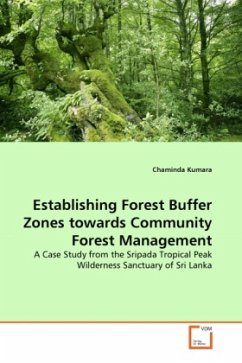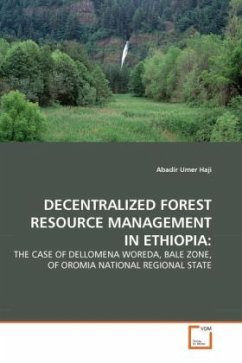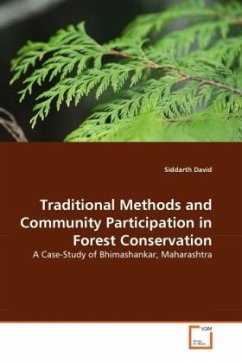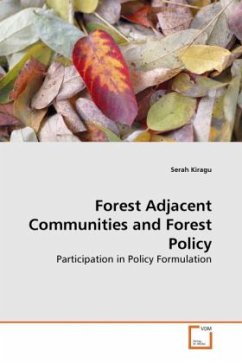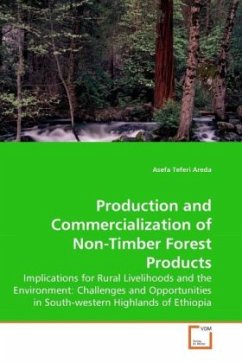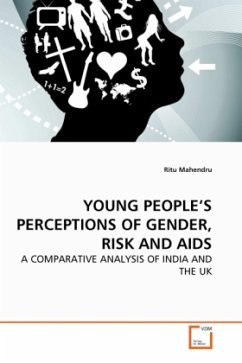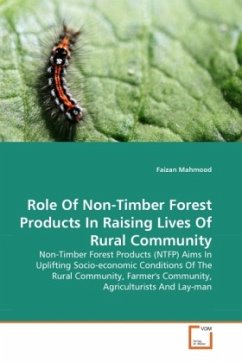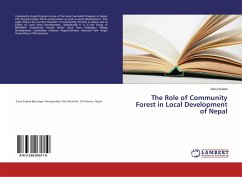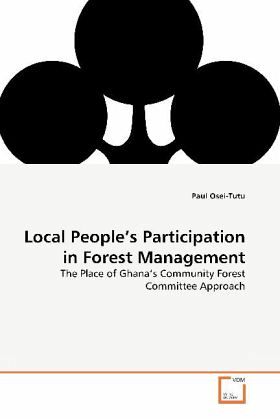
Local People's Participation in Forest Management
The Place of Ghana's Community Forest Committee Approach
Versandkostenfrei!
Versandfertig in 6-10 Tagen
32,99 €
inkl. MwSt.

PAYBACK Punkte
16 °P sammeln!
From the late 1970s, there has been a trend towards the involvement of local people in forest management in many countries of Africa, Latin America and Asia. This shift in management strategy has beennecessitated by a desire to achieve social justice, effectiveness and efficiency in forest management as the previously centralised management strategy failed to achieve these in many countries. Though the fundamental idea has been widely accepted, approaches to involving local communities in forest management have varied from place to place. This work examines different approaches to involving lo...
From the late 1970s, there has been a trend towards the involvement of local people in forest management in many countries of Africa, Latin America and Asia. This shift in management strategy has beennecessitated by a desire to achieve social justice, effectiveness and efficiency in forest management as the previously centralised management strategy failed to achieve these in many countries. Though the fundamental idea has been widely accepted, approaches to involving local communities in forest management have varied from place to place. This work examines different approaches to involving local people in forest management and compares Ghana's Community Forest Committee (CFC) approach to approaches being employed elsewhere. It is the first comparative study of Ghana's CFC approach to involving local people in forest management and contributes to addressing the information gap on Ghana's participatory forest management efforts. It should be useful for forestry professionals and people interested in forest management trends in developing countries.



